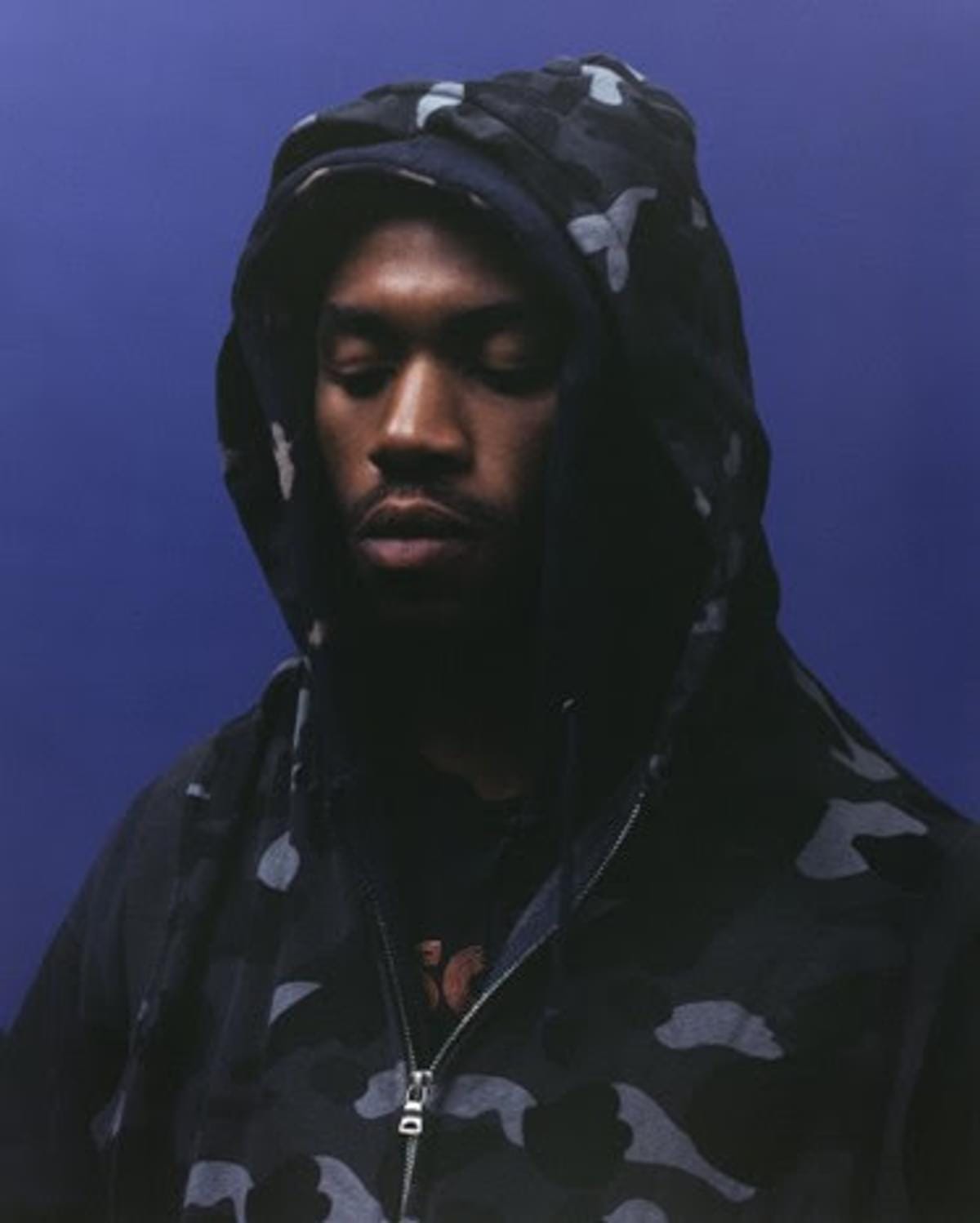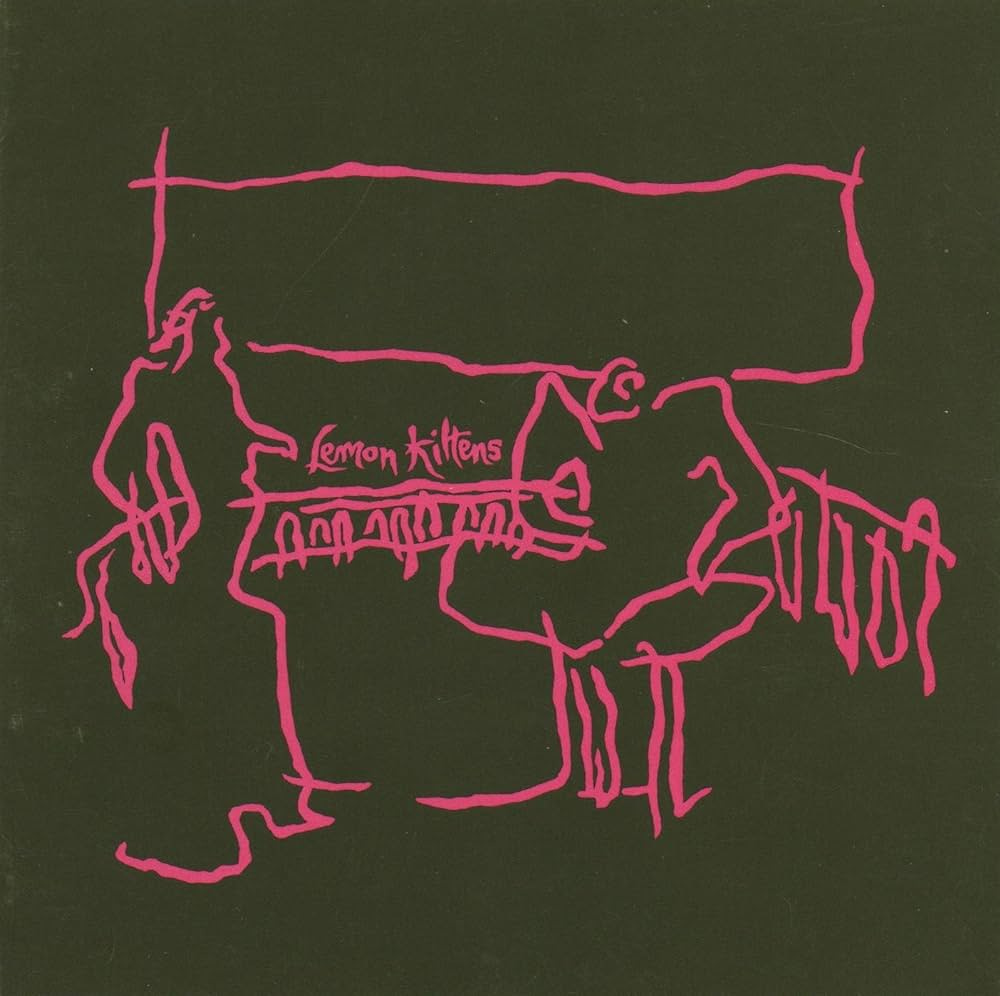The Friday Dispatch
Jamila Woods, Soccer Mommy, Helena Deland, The Lemon Kittens, and Elvin Brandhi & Lord Spikeheart
The tiny apocalypse of Jamila Woods
Jamila Woods has always worked with the language of apocalypses. Major themes of identity, community, injustice and power have been constant driving forces in her work, but even now, as she aims to capture in song the most intimate and vulnerable moments a person can live through, it still carries the force of walking into the wall of an ocean wave.
The point of a Jamila Woods song is that it confounds in its inability to be defined. In the lead-up to the release of her third album Water Made Us, and speaking of that which confounds us, I get to talking with Woods about spiritual practices, mentioning my theory that younger people now gravitate towards concepts that predate organised religion because of how stifling those often archaic structures feel.
Her cat runs across her desk, causing a blur of motion on my computer screen and providing us a second of light laughter to counterbalance the heaviness of the topic. “Everything always feels so high stakes,” she smiles, “but to zoom out, it’s like, we’re all still just spinning on a ball.”
Lowering the stakes is a key tenant of Woods’ latest full-length offering, whose title comes from a talk Toni Morrison gave in 1996 – specifically a quote she gave about the restructuring of the Mississippi River and how the water still floods in those areas cleared for liveable acreage. “All water has a perfect memory and is forever trying to get back to where it was,” the late literary giant said. While attempting to dissect a similar kind of muscle memory in terms of her patterns in romantic relationships, Woods put a pin in each tiny apocalypse she experienced – documenting each overwhelming feeling as it washed over her.
At another point in our conversation, Woods starts shuffling things around on her desk to look for an album “bible” she made after connecting with LA-based producer McClenney and beginning to piece the seemingly unrelated songs she’d written into something coherent. “I want it to sound multi-genre,” she had written in the notebook, “Oral, transcendent, open, introspective, mantra-like, vocal-centred. I want space for my voice to be heard.” These are loose, nebulous concepts, all difficult to translate into an album’s standard runtime – something Woods hit up against when she first started writing with no set plans in the early days of the pandemic.
Since officially finishing the album in March, Woods has been in a transitional state; if the relationships in her life continuously change who she is over time, the creative work she puts out into the world pushes and pulls at her too. She recounts how touring LEGACY! LEGACY! on the tailend of a breakup helped her to rebuild her confidence – a song’s meaning could transform from listening session to listening session, from performance to performance.
“It’s like a time capsule. You know the Harry Potter thing where you can physically go back into a memory? Well, that’s what it feels like to perform it,” she laughs. “Also, I’m different every time, not just the song. With LEGACY!, I wrote the perfect album for what I needed on that tour without knowing it. [Each album] always brings me something different at every stage: writing it, making videos, talking about it and then performing it.”
Soccer Mommy overcomes her harshest critic
It’s been an interesting year for 26-year-old musician Sophie Allison, better known by her stage name Soccer Mommy. She's freshly back from touring alongside Brooklyn-formed alt-rockers The National, which took her across the US, UK and Ireland. Since dropping her third album Sometimes, Forever last year, following 2020’s Color Theory and her 2018 debut Clean, it’s been a seemingly quiet time for the down-to-earth indie artist. Her latest EP Karaoke Night was a low-pressure project, focused on harnessing the greats while having fun. Covering the likes of shoegaze heroes Slowdive and Pavement alongside pop and country icons Taylor Swift and Sheryl Crow, plus R.E.M for good measure, the EP has the Soccer Mommy grunge thread weaving through, creating a body of work that neatly echoes her own Nineties-influenced sound.
“The tour was good, but exhausting. There were a lot of long drives,” Allison admits smiling, clearly happy to be back at the home she shares with her long-term partner and bandmate Julian Powell. “The guys in the band are all super helpful. I had never really crossed paths with The National until day one of the support shows. It’s incredible to watch them play live.”
While trekking across the UK and Ireland in a van, Soccer Mommy also released a brand new EP of covers, shrouded in the bandleader’s magnetic vocals and dreamy melancholy. Reworking hit songs of the last three decades, its tracklist features Taylor Swift throwback “I’m Only Me When I’m With You”, Sheryl Crow’s anthemic “Soak Up The Sun”, the brooding “Dagger” by Slowdive, classic Pavement track “Here” alongside R.E.M’s “Losing My Religion”.
Karaoke Night is inventive and woozy in its indie-rock roots, crafting a batch of songs that wouldn’t feel out of place on Sometimes, Forever. Like Lucy Dacus covering Springsteen or Phoebe Bridgers’ take on Elliott Smith, capturing the magic of others in her own style appears to come easily to Allison.
“There’s two ways to approach it,” she offers, matter of fact. “Sheryl Crow is in a world close to what I do or have done before. I can’t make it a carbon copy of her song. She’s better than me, why would you ever listen to a copy of me singing this? The most important thing when you’re doing a cover is that it has to feel like you. I’m not a theatrical, trained singer. I’m not just going to do a perfect, stunning rendition. I want it to come from inside.”
Helena Deland and the language of letting go
Helena Deland had no real motivation to dig into her past, not when the future had so much fruit to bear. Moving to Montréal aged 20 to study literature, she found herself spending more and more time on music: singing, playing bass in short-lived bands, and eventually demoing songs of her own. One of her first studio experiences was guesting on a track by Montréal-based indie-pop trio Men I Trust, and it wasn’t long before she became an integral part of the city’s small but galvanising music community.
Wanting to take her time in making something as official and defining as a debut album, Deland at first favoured bitesize bouquets of songs. But when her debut did arrive in October 2020, it was in the stifling confusion of the pre-vaccine pandemic – not ideal timing, but Deland had waited long enough to make her first big statement. Honouring her devotion to the album as an art form and as a narrative, Someone New was a finely examined and generously textured exploration of her identity and the dynamics of its perceived limitations. “At a certain point, I began to question everything,” she told Best Fit at the time. “How I felt as a woman, how I felt in relation to men, and how I felt in relation to myself.”
But only months out from the release of Someone New, her mother Maria was diagnosed with a terminal illness. She passed away in the summer of 2021, leaving Deland reeling in the wake of her first true experience of grief. Writing, she says, was a way of demystifying the grieving process; what she couldn’t communicate through speaking came to her in song. “It was useful for me to put what grief was teaching me into music, even if just to have that process reflected back at me in a way that felt very intimate and personal.”
Three things to get excited about this week
The return: After last week’s release of “Blanket,” Kevin Abstract has officially announced his return. His new studio album of the same name is set to drop on November 3 and will be Abstract’s first since Brockhampton’s hiatus. Made with longtime collaborators Romil Hemnani and Jonah Abraham, Blanket pulls significantly from rock influences. “I wanted to make, like, a Sunny Day Real Estate, Nirvana, Modest Mouse type of record,” he says of the project. “But I wanted it to hit like a rap album.”
The diaries: For eight years in the mid 80s, Tina Brown served as editor-in-chief of Vanity Fair. Her time at the magazine — often raucous, always entertaining — is chronicled in The Vanity Fair Diaries: 1983-1992. Brown takes readers through the cornerstone events of her tenure at Vanity Fair, for which she was brought over from England to try and save the publication in the cutthroat New York media scene. The book chronicles events as big as Princess Diana’s marriage and as intimate as literary house parties, a treat for any follower of media and pop culture. We’re revisiting the memoir this week and think you should, too.
The video: Troye Sivan’s highly anticipated record Something to Give Each Other is out today, and along with it is a new video for the record’s next single “One of Your Girls.” The visual is the third to drop from this project and features Sivan glammed up in drag. In addition to a rotation of stunning looks from Sivan, Ross Lynch also comes on board to guest star. For an album rollout that has set out to celebrate queer liberation and lust, this video is another bold step from Sivan in an era that may be his best.
Something Old, Something New
Every week, one of our writers or editors share their recommendations of two records they love - one from the past, one from the present. This week, Joe Creely takes us through Lemon Kittens’s We Buy a Hammer for Daddy and Drunken Love by Elvin Brandhi and Lord Spikeheart
In David Keenan’s seminal England’s Hidden Reverse, his history of the esoteric, arcane underbelly of the 80s D.I.Y. underground, Lemon Kittens emerge as much part of some tangential soap opera as they do an actual band. It leaves them rather sidelined, a side story in the internal wrangling of Nurse With Wound rather than recognised for the magnificently wonky, surrealist landscapes they concoct.
Their finest work remains 1980’s We Buy A Hammer for Daddy, a wayward but strangely inviting record of mutant post-punk and homespun invention. In its way it touches on many of the themes that ran through a lot of music of the era: critiques of nationalism, and domestic terror; but the balance it strikes between abrasive and inviting is utterly singular. The record’s sonic expanse takes in everything from free-jazz to cheap electronics, but they’re always just the slightest wobble off centre, in a way that can turn the scratchy Gang of Four sound-alike ‘Up In Arms’ into something far more slippery and uncanny. It does all this whilst never abandoning tunes, kept afloat by melodies that are solid enough that no matter what freeform chaos surrounds them, they still feel fundamentally like songs.
Its combinations of brevity and experimentalism make it into an oddly modern feeling record, one that is constantly shifting, whilst also feeling like it could have come out 10 years before or after it did. It remains set apart, a shaky stepping stone between the oddest edges of post-punk, and the out-and-out noise of Whitehouse and Coil, but one shot through with its own singular eccentricity.
Meeting while Elvin Brandhi was collaborating with some of Spikeheart’s Nyege Nyege Tapes label-mates, the fitful collaborations between the two have culminated in a masterful record. Drunken Love is a constantly shapeshifting album of often vicious abrasion, but one that captures the chaotic mood of the times perfectly.
Brandhi’s signature vocal manipulations are on full display, voices twisted and mulched until unrecognisable as anything human. Sometimes, as on "whiom8warwomb666" they’re stretched to become some hellish air raid siren, while "DEATH CODE E666" emerges like some oasis of relative calm, the vague spectre of deconstructed R&B balladry amidst its crying babies and creaking percussion. Spikeheart’s vocals are anguished and cataclysmic and bring real human intensity to some of Brandhi’s pummelling drum patterns.
But amid all this battering, all these sounds of a world falling apart there’s a sneaky sense of fun. Some of it is pretty straightforwardly danceable, and there’s a sly melodic sensibility that occurs at expertly judged intervals, just when the record threatens to tumble into shapelessness. It adds up to one of the most punishingly disorientating records you’ll hear all year. Remember the Honeycomb Maze from Takeshi’s Castle? This record feels like how it would feel to run through that in total darkness, except instead of being chased by some fella in face paint, it’s a properly irate grizzly bear. Also, the maze is on fire. A truly inspired work by two of the most exciting artists around.
Listen to the week in new music by following our Discovery playlist
Dropping at midnight every Thursday, follow our 20-track playlist for a taste of the best new music from the most exciting breaking artists.
These are the songs our editors and writers have on repeat right now, taken from the hundreds of tracks released in the last seven days. Leading the selection this week are cuts from es.cher, Viji, Lip Filler, George Riley, and coverstar gglum.










